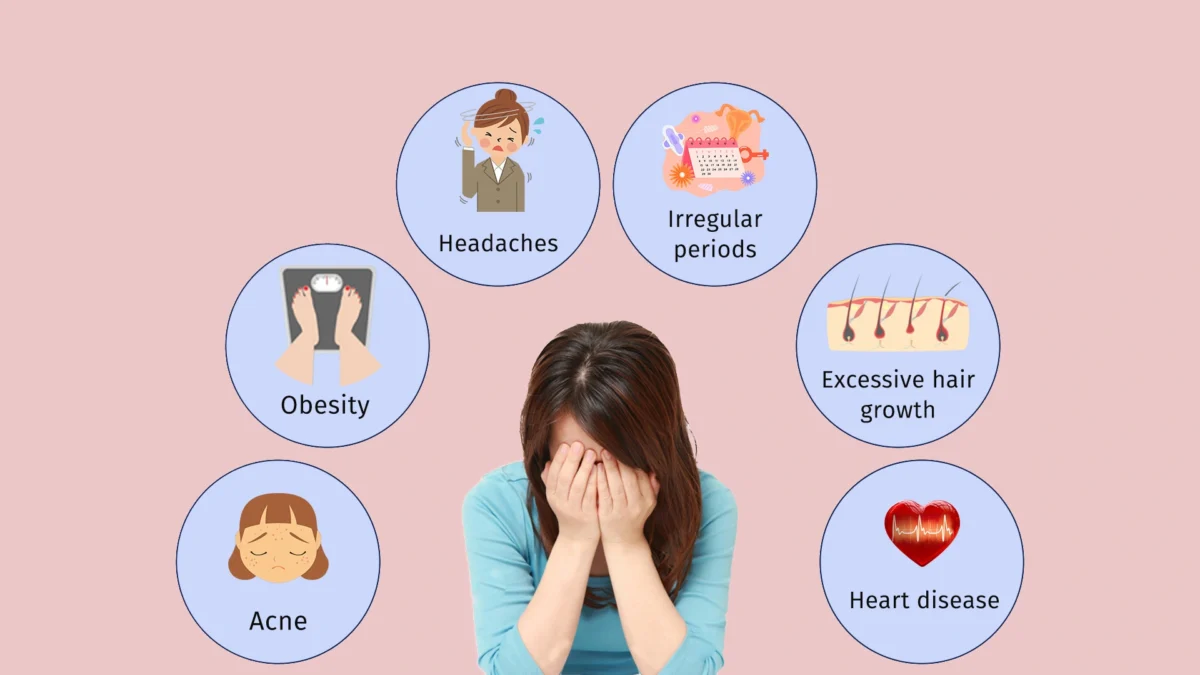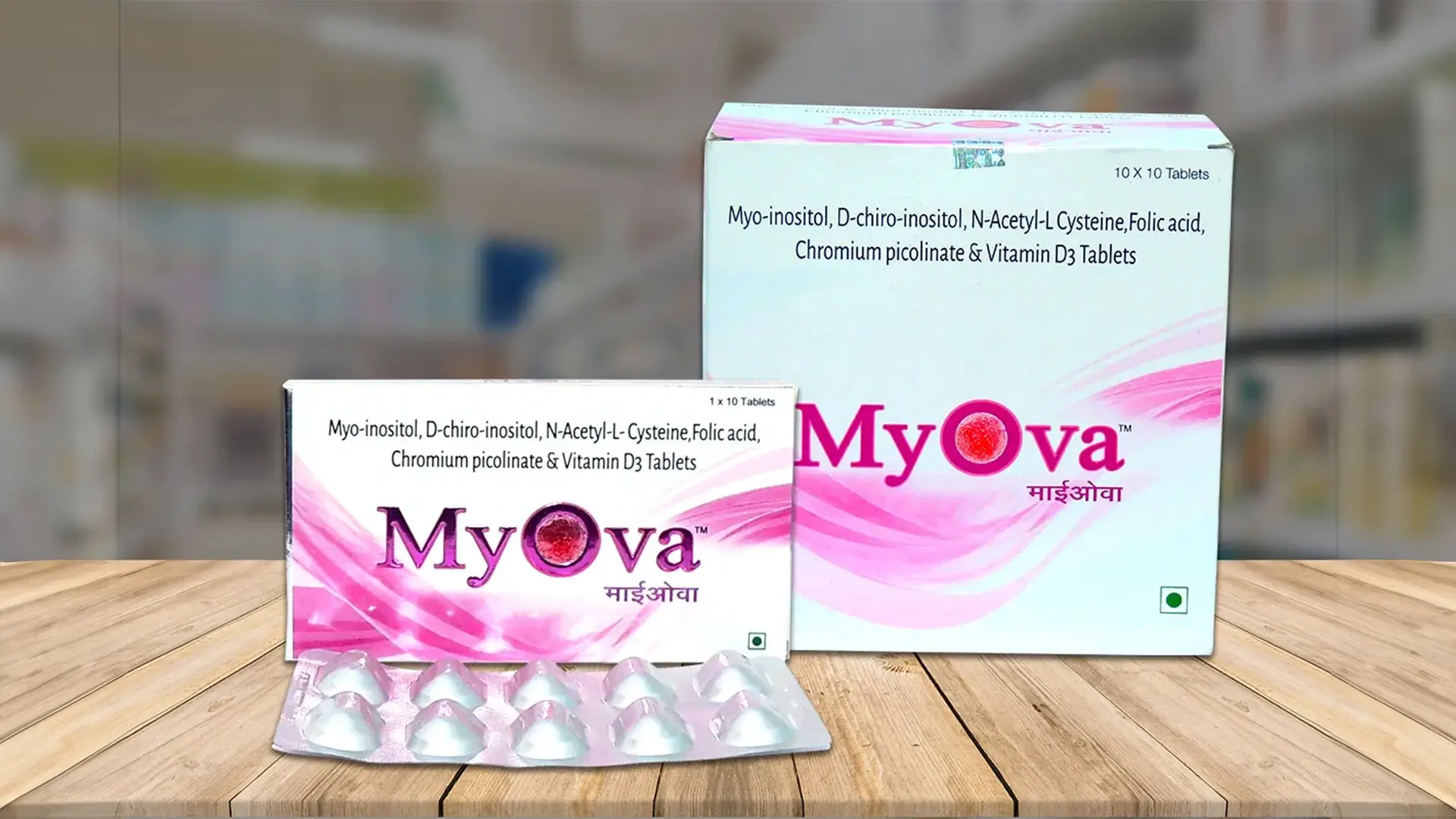Impact of Polycystic Ovarian Disease (PCOD) on Women’s Health
Do you know what percentage of polycystic ovarian syndrome (PCOS) prevalence in India is? It is 22.5%!!
Yes! Polycystic Ovarian Disease (PCOD) is a common hormonal disorder affecting many Indian women of reproductive age worldwide. Its impact on women’s health is really severe, influencing not only their reproductive systems but also their metabolic, endocrine, and psychological health.
Understanding PCOD, its problems, and its full implications is crucial for managing its effects and improving the quality of life for those affected.
What is Polycystic Ovarian Disease (PCOD)?
Polycystic Ovarian Disease (PCOD) is a condition characterized by the development of multiple small cysts in the ovaries. These cysts are actually follicles containing immature eggs that have not reached ovulation due to hormonal imbalances.
The full form of PCOD stands for Polycystic Ovarian Disease, highlighting its nature as a disease involving multiple cysts in the ovaries.
Hormonal Imbalances and Symptoms
The hormonal imbalances in PCOD involve an increase in androgens (male hormones) and insulin resistance. These imbalances can lead to a range of symptoms, including irregular menstrual cycle, excessive hair growth (hirsutism), acne, and obesity.
Women with PCOD may also experience difficulty conceiving due to irregular ovulation or anovulation (lack of ovulation).

Polycystic Ovarian Disease (PCOD) Problem
The PCOD problem extends beyond reproductive health issues. Women with PCOD are at an increased risk of developing several health conditions, including:
1. Type 2 Diabetes: Insulin resistance, a common feature of PCOD, increases the risk of developing type 2 diabetes.
2. Cardiovascular Diseases: Polycystic Ovarian Disease (PCOD) is associated with risk factors for cardiovascular diseases, such as high blood pressure, high cholesterol levels, and obesity.
3. Mental Health Issues: The hormonal imbalances and physical symptoms of PCOD can also impact mental health, leading to increased rates of depression, anxiety, and low self-esteem.
4. Reproductive Issues: Reproductive issues are among the most direct impacts of PCOD. Infertility, recurrent miscarriages, and complications during pregnancy such as gestational diabetes and pre-eclampsia are more common in women with PCOD.
Impact of Polycystic Ovarian Disease on Women’s Health
- Metabolic Effects: PCOD significantly affects women’s metabolic health. Insulin resistance, a hallmark of the condition, can lead to weight gain and obesity, exacerbating the symptoms of PCOD and increasing the risk of developing more severe health conditions.
- Psychological Effect: The psychological impact of PCOD on women’s health is significant. The physical symptoms can affect self-esteem and body image, leading to social isolation and depression. Moreover, the challenges of dealing with infertility can cause emotional distress and strain on relationships. Mental health support is an essential component of comprehensive PCOD management.
Long-Term Health Risks
The long-term health risks associated with Polycystic Ovarian Disease (PCOD) include chronic conditions such as type 2 diabetes, cardiovascular diseases, and endometrial cancer. Early diagnosis and proactive management of PCOD can help mitigate these risks, emphasizing the importance of regular medical check-ups and monitoring for women diagnosed with the condition.

How to manage PCOD?
Managing PCOD involves:
Lifestyle Changes:
- Adopting a balanced diet
- Engaging in regular exercise
- Focusing on weight management
Medical Treatments:
- Prescription medications to regulate menstrual cycles
- Medications to manage symptoms like hirsutism and acne
- Treatments to address fertility issues
Healthy Diet:
- Low in refined carbohydrates
- High in fiber to improve insulin sensitivity
Regular Exercise:
- Helps reduce insulin resistance
- Promotes weight loss
- Free hand exercises
These lifestyle changes contribute to:
- Significant improvement in PCOD symptoms
- Enhanced fertility
- Reduced risk of long-term health complications
Eskag Pharma Private Limited introduces Myova Tablet. It is designed to address polycystic ovarian syndrome (PCOS), regulating menstrual cycles and improving hormonal imbalances to promote ovulation. Additionally, it supports weight loss efforts by boosting metabolism and helps maintain strong bones by regulating calcium levels in the body.
Wrapping up!
The impact of Polycystic Ovarian Disease (PCOD) on women’s health is multifaceted, affecting their reproductive, metabolic, and psychological well-being. Understanding what PCOD is, the problems it poses, and its full implications is essential for effective management and improving the quality of life for those affected.
